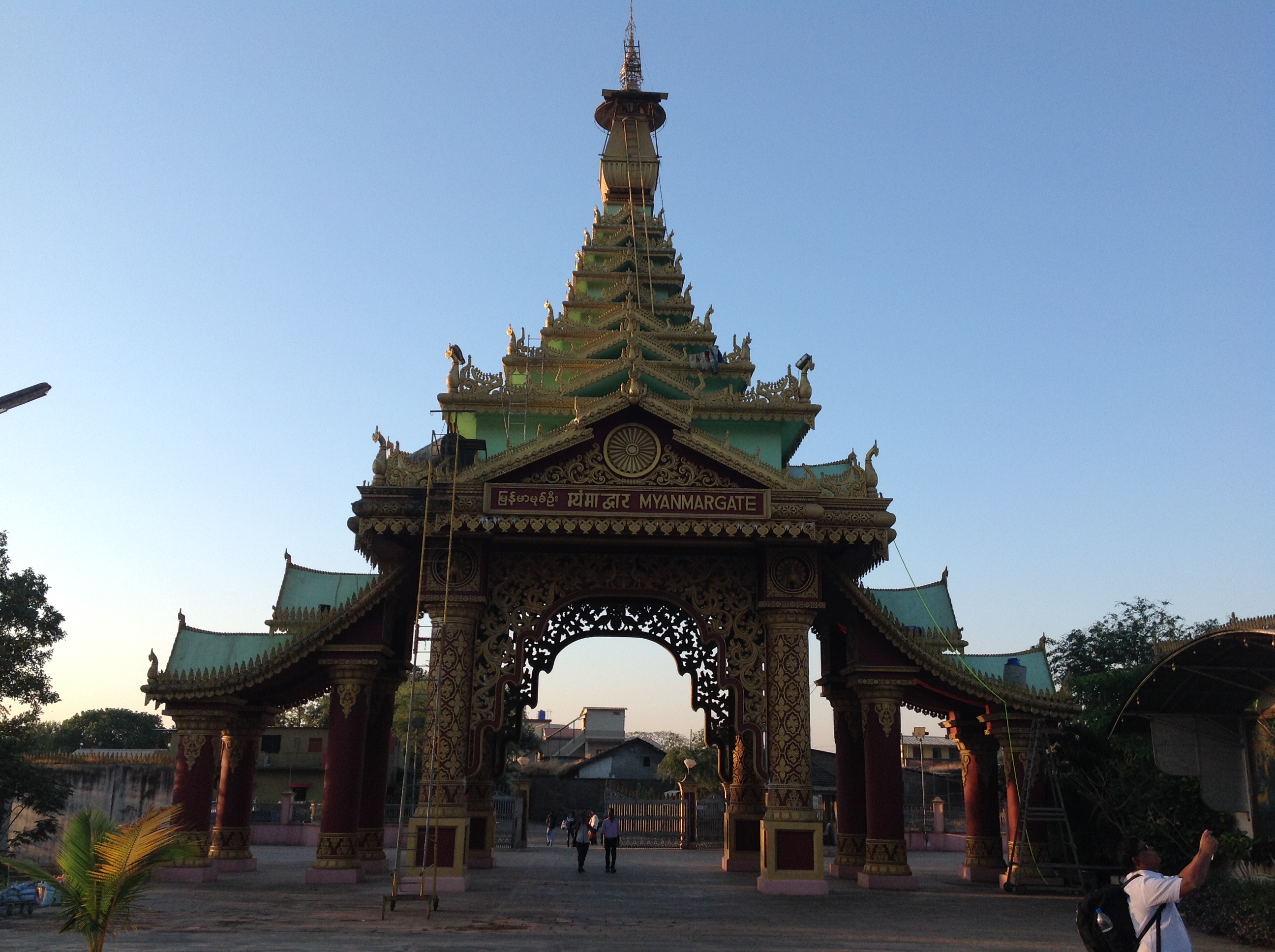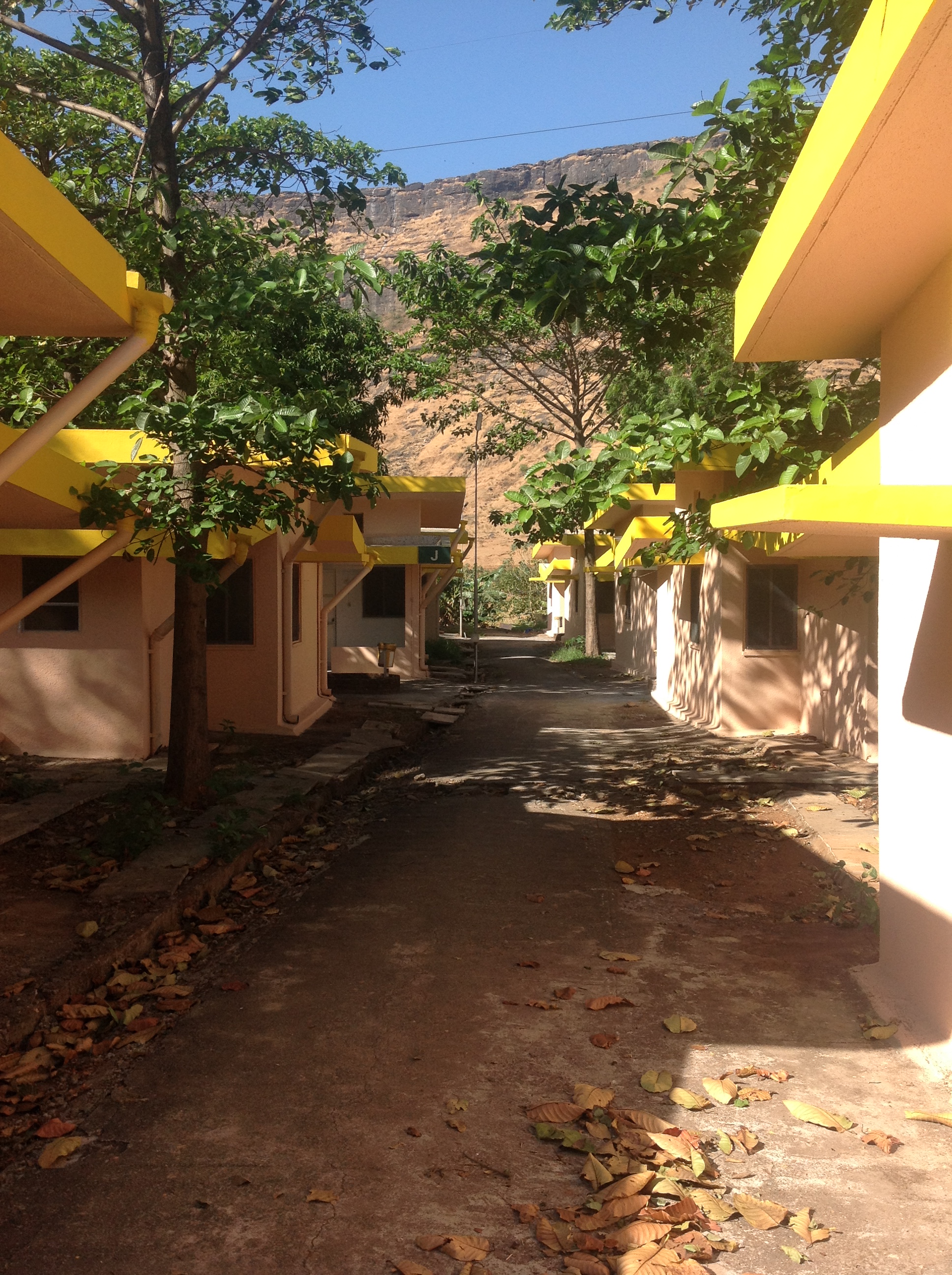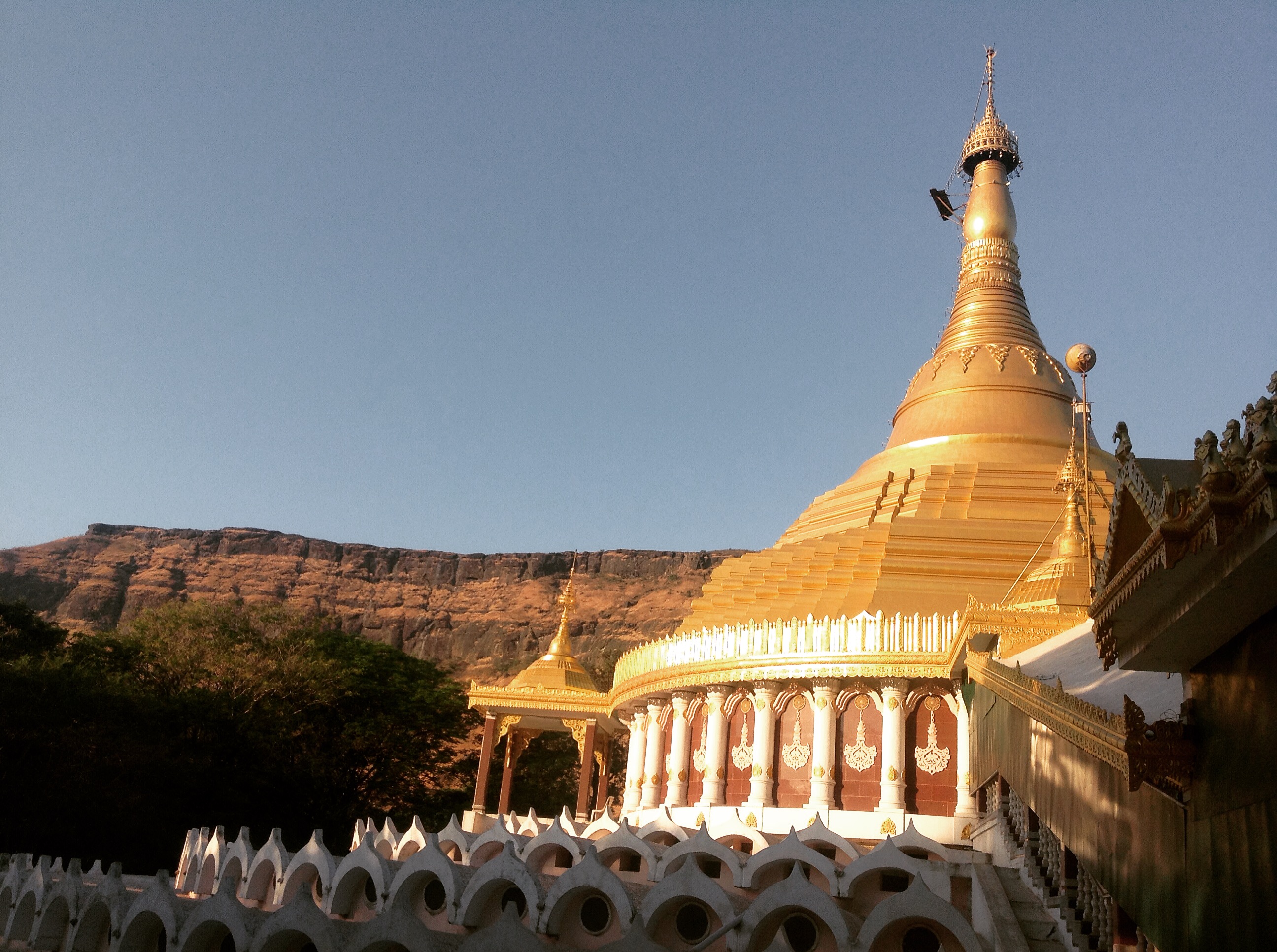The beautiful Pagoda at Dhamma Giri set against the hills, Igatpuri.
I recently attended the increasingly popular 10-day Vipassana meditation retreat which required me to observe Noble silence (Abstinence from any form of verbal or non-verbal communication); stay disconnected from the outside world, have my last meal at 5:00 pm, and meditate for 11 hours a day. I was introduced to Vipassana by accident. One of my favourite authors and thinkers, Yuval, a native of Israel, dedicated his latest book Homo Deus to a certain S.N Goenka, a name that curiously seemed Indian. On further checking, I found that SN Goenka is Vipassana’s famed teacher and that Yuval makes it a point to attend a 60-day Vipassana course (WTF?!) at least once a year. The fanboy in me decided to give Vipassana a shot. In what you will read further, I will not just describe my experience but also provide you with necessary insight into the world of spirituality and meditation. Before we proceed, it is important to note:
1- If you are in hunt of expert opinion, I’m afraid you may not have landed at the best resource. If you have reached here, there is chance you are a spiritual novice just like me and hence I found it relevant to share my experience.
2- A simple life hack to fully understand and appreciate this post and life in general is to acknowledge that you “Don’t know”. If you acknowledge that humans, both individually and collectively, pretend to know more than they actually do, it makes you 50% wiser almost immediately.
What is spirituality and how is it different from religion?
Religion is about creating social order and deals with humans on a collective level whereas spirituality deals with humans on an individual level with its focus on you.
Religion has played a significant role in evolving humans into the most dominant (and dangerous) animal on planet. In the form of stories, Religion for long has told us what is ‘good’ and ‘bad’ and that if we do the right things we go to heaven; or hell otherwise. For instance, humans prefer to be loyal to their partners not out of fear of law but out of fear of doing something that is ‘wrong, ‘bad’ and immoral’. Without monogamy, the human society will have to confront unprecedented chaos. Albeit important, all of these are eventually subjective truth: What may be ‘immoral’ for one, may appear perfectly reasonable to another.
Spirituality on the other hand deals with the objective truth: about you, your body, and your mind but there is a catch: Spirituality cannot be understood but only experienced. In fact, it dismisses intellectual indulgence(condescendingly calls it “intellectual entertainment” or “intellectual drama”) and puts foremost emphasis on experiential learning.
Religion is about creating social order and deals with humans on a collective level whereas spirituality deals with humans on an individual level as it focuses on you.
Orgasm: “Intellectual entertainment” vs “Experiential learning”

If you are reading this, I am going to assume you have experienced at least one orgasm in life: by virtue of self-pleasure or otherwise. Imagine you were to explain what an orgasm feels like to a friend who hasn’t experienced it yet. You will feed her with all possible intellectual data/analogies to best describe an orgasm and what it feels like. Far from experiencing an orgasm, the friend being a gifted intellectual, goes on to conduct significant research on the biochemical reactions that occur when one orgasms and the effect it has on different regions of the brain. Happy with the progress she made on the topic, she also publishes countless research papers and Facebook updates on her findings. She goes to bed every night pretending to know so much about an orgasm. All of this is but only her 'intellectual drama'. If she truly wants to understand what an orgasm feels like, she must simply experience it!
Similarly, spirituality claims the best way to understand life, your body, and mind, is not by cutting it open and indulging in "intellectual drama" but by experiencing it. It makes claims about the human body and mind that at best appear fascinatingly mysterious and at worst, bizarre. For instance, it claims what you consider you is changing to the extent of 2 trillion times per second. So what really are you? It claims that it is possible to transcend your physical and mental barriers to experience another dimension. Given that you and I are nowhere close to experiencing any of these mystic claims, it only serves the purpose of "intellectual entertainment" for us. So how does one experience all these mysterious possibilities? There exists a technology in place and it’s called meditation.
Whether you own an iPhone or an Android, the science behind it is essentially the same. All of them harness different technologies and you eventually use the technology that suits you best. Similarly, there exist multiple meditation technologies all of which operate on the same science. Vipassana is one such lost technology invented by The Buddha (at its peak, used by seekers across the subcontinent and beyond till as far as Afghanistan and China) and today rekindled across the globe by S.N Goenka. It is possibly the purest and a fairly extreme form of meditation.
What does Vipassana mean?
Vipassana means “to see things as they are”. Let me simplify that for you.
The photo you see below is the original copy of the constitution of India.

If you are Indian, possible reactions may include: “OMG! This is such a great document” “This is the holy grail that all Indians live by”. If you look at the object "as it is", you will notice nothing "great" or "holy" about the object per se. The chemical composition of the paper is the same as that of any other: contains Cellulose, Hemi-cellulose, Lingin. Any search for "great" or "holy' chemical in it is wasteful exercise. What remains is just “A book with text written on it”. Similarly, if someone abuses you, Vipassana will train your mind to process the abuse as merely a stream of words. It claims that it is only your reaction to the mere stream of words that gives it undue importance. Whether or not you grasp these examples on an intellectual level is futile but with its technology, Vipassana and other meditation techniques urge you to experience it.
Unfortunately, I couldn’t experience Vipassana to its fullest for reasons little to do with the course per se but more with chance and personal inability. Some highlights:
1- Although they have centres across the globe, I attended the course at its (extremely scenic) capital center in Igatpuri, Maharashtra for which I applied 4 months ahead of time (and so must you). Not surprisingly, It is the preferred choice for Vipassana seekers across the globe. My course saw 140 seekers come from Iran(for whom there was separate arrangement in place). My fellow meditators included souls from US, Germany, and Russia.

The magnificent Myanmar Gate welcomes you to Dhamma Giri.
2- My room-mate, a nice and accommodating middle aged man had one unfortunate shortcoming he shared with 45% adults across the globe: snoring disorder. I could manage only negligible sleep for the first 4 days of the course. The organizers do everything in their noble capacity to ensure students have the best experience (which is endearing for a course that is absolutely free). However, given that they were running full capacity, I could only be granted another room on the 5th day after someone left the course midway (a common occurrence).

Don't lay much emphasis on your residential pad for you will only need it to crash at night and perform morning abulation. You are expected to live a monk's life for 10 days surviving on others' charity.
3- For someone who is extremely social and lacks personal discipline, the course was radically rigorous. The Vipassana meditation technique, a deep mental surgery as they describe it, will invoke positive and negative thoughts through its practise. It was my inability to cope with the negative thoughts clubbed with the radically new lifestyle that wound me up. I had a mental breakdown on the 8th day and went to my room and cried for a good 30 mins. Until that moment, the idea of me crying had been a radical notion . I was exposed to a side of my mind that I didn't know existed. I survived trough the entire duration of the course though: An absolute must I’d insist.
I had a series of curious experiences towards the end of my stay, oddly for which I am tempted to take the course again at a later time. Post my mental breakdown and with the Assistant teacher's consent, I stopped meditating. Like a typical backbencher, I would simply sit at the back of the hall and watch everyone else meditate in front of me (because there is nothing else to do. You either meditate or watch others meditate). On the 9th day, I observed my body vibrate back and forth like a pendulum. For 2 straight hours I just sat and observed vibrations penetrate my body(Stop calling me a freak, will you). These ended as soon as everyone in the hall stopped meditating. It happened throughout the 9th and 10th day.
Closing words: If you have ever been a gamer, you’d be familiar with the idea of cheat codes, a bunch of hacks known initially to a select few that helps them through the game while others struggle. For me, the world of spirituality and meditation is just that: hacks currently known to a select few. As far as Vipassana is concerned, I believe it requires certain amount of intellectual and personal maturity. I will recommend it to anyone at least 25 years of age and/or with prior exposure to other simpler forms of meditation. While you try other technologies, I will urge you to experience Vipassana at least once in this lifetime.
You can find out more about the course and apply here


